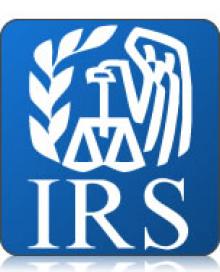 TAXES
-- OK, don't stop reading now, and don't start getting teary-eyed.
TAXES
-- OK, don't stop reading now, and don't start getting teary-eyed.Of course, taxes are relevant to bankruptcy. But, I am actually going to take a different approach than what you might be thinking concerning bankruptcy.
There are but few places where one can maintain assets in a secured place, free from the threat of creditor's claims. One place is created by everybody's best friend, the IRS (yes, love your enemies!). If you have a retirement account, recognized by the Internal Revenue Service, in most instances, those funds are probably protected.
OK, so now for retirement accounts. While everyone has heard of many of the more popular retirement plans, such as an IRA, and a 401(k). But there are actually many types and varieties of retirement plans, including one I only recently heard of referred to as a Solo 401(k).
That's right, this blog is really about something you might be interested in reading if you are self-employed and looking for a way to put aside some money.
If you are looking for a way to put aside some money for retirement, a Solo 401(k) may be just the thing for you. As you probably already know, there are limited places you can put funds to where they are protected from creditor's claims. While it appears most self-employed individuals have an IRA as a retirement vehicle, a Solo 401(k) allows you to put away a significant chunk of change that’s protected from taxes and creditors. It’s all in the name of retirement and long-term financial well-being.
 Freelancers, self-employed professionals and others are used to the “feast or famine” routine. Good years can be spectacular, but they’re largely balanced out by the not-so-good ones.
Freelancers, self-employed professionals and others are used to the “feast or famine” routine. Good years can be spectacular, but they’re largely balanced out by the not-so-good ones.Solo 401 (k) – A Better Bet For Self-Employed
The Solo 401(k) allows much larger annual contributions than the typical IRA account. If you (or you and your spouse) are the only employees, you get to skip all of the fairness rules that make running a 401(k) plan so expensive. For 2013, you can put away more than three times the IRA limit if you are over 50. You can also defer some of your earnings for later years, too. Total contributions in a year can be as much as $50,000. That will fund lots of leisure in retirement, if you contribute regularly.
Read more: Solo 401(k) Do’s and Don’ts
Solo 401(k) Must Be Opened By December 31. In order to take advantage of the Solo 401(k) for this year, you must open and fund your plan by December 31. This is in contrast to the normal deadline of April 15 for opening and funding an IRA.
Contact any of the discount brokerage houses to open up your Solo 401(k) Plan. Your future self will thank you.


